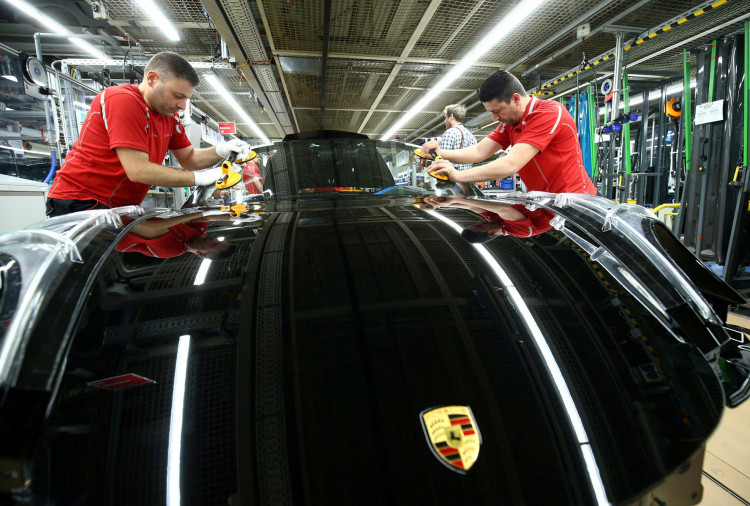Reuters - Germany's economy contracted by a record 9.7 percent in the second quarter as consumer spending, company investment and exports all declined at the height of the COVID-19 pandemic, the statistics office said Tuesday.
The economic slump was much stronger than during the financial crisis more than a decade ago, and it represented the sharpest decline since Germany began to record quarterly gross domestic product calculations in 1970, the office said.
Still, the reading was an upward revision from an earlier estimate for the April-June period of minus 10.1 percent that the office published last month.
Consumer spending shrank by 10.9 percent on the quarter, capital investment by 19.6 percent and exports by 20.3 percent, seasonally adjusted data showed.
Construction activity, normally a consistent growth driver for Germany's economy, fell by 4.2 percent on the quarter.
"The second quarter was a complete disaster," VP Bank AG economist Thomas Gitzel said. "Regardless of whether it is about investments, private consumption, exports or even imports - everything was in free fall."
The only bright spot was state consumption, which rose by 1.5 percent on the quarter as a result of the government's coronavirus rescue programs, the office said.
Germany's parliament has suspended the debt brake this year to allow the government to finance its crisis response and fiscal stimulus push with record new debt of 217.8 billion euros.
The fiscal U-turn after years of balanced budgets means that Germany recorded a budget deficit of 51.6 billion euros from January to June, the statistics office said in a separate statement. That represents a deficit of 3.2 percent of economic output as measured by the European Union's Maastricht criteria.
Employment fell 1.3 percent on the year to 44.7 million - a sign the government's efforts to shield the labor market from the coronavirus shock with its short-time work program are paying off.
The relatively mild effect of the crisis on employment helped to stabilize income for many households, which together with the reluctance to consume, led to a considerable increase in household saving.
The savings rate almost doubled to 20.1 percent in the second quarter compared with the previous year, the office said.
Germany's central bank expects household spending to lead a recovery in the third quarter but the economy might not reach its precrisis level before 2022.
The government measures include a temporary value-added-tax cut from July to December costing up to 20 billion euros but giving household spending an additional push.
"The reopening of the economy will give the German economy a strong boost in the period from July to September," Gitzel said but added that the moment of truth would come in the autumn and winter months, which could see a wave of bankruptcies.
"In addition, the negative consequences of structural change in the automobile industry are becoming increasingly evident," Gitzel said. Many small suppliers in the sector are struggling to adapt to digitization and electrification.






